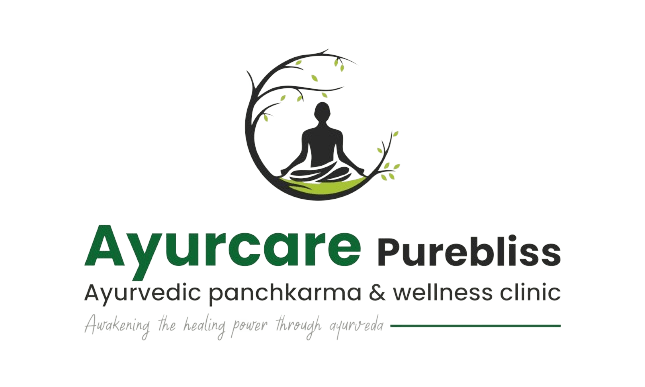Paralysis Ayurvedic Treatment
Everything in the universe is composed of the five elements: space, air, fire, water and earth.

Paralysis Treatment
Paralysis is a condition that impacts the normal functioning of muscles, resulting in a loss of movement and control. Paralysis, often caused by damage to the nervous system, such as a stroke or spinal cord injury, can be a life-altering experience. There are different types of paralysis, including monoplegia (affecting one limb), hemiplegia (affecting one side of the body), paraplegia (affecting the lower body), and quadriplegia (affecting both the upper and lower body).
Rehabilitation plays a crucial role in managing paralysis, focusing on enhancing mobility and restoring independence. Physical therapy, occupational therapy, and assistive devices are integral components of a comprehensive treatment plan. While paralysis can be challenging, advances in medical research and therapeutic interventions provide hope and opportunities for individuals to regain functionality and improve their quality of life. It’s important to seek medical advice promptly for proper diagnosis and personalized care tailored to individual needs.
Causes of Paralysis
Paralysis is frequently caused by disruptions in the nervous system, often arising from conditions such as stroke, spinal cord injury, or neurological disorders, resulting in the loss of muscle function and control.
What are the primary reasons behind paralysis?
Paralysis is commonly caused by disruptions in the nervous system. Stroke, spinal cord injuries, and neurological disorders are frequent contributors to the loss of muscle function and control.
Are certain medical conditions linked to paralysis?
Conditions like multiple sclerosis, cerebral palsy, and Guillain-Barré syndrome can contribute to paralysis. These conditions affect the nervous system, impacting muscle movements.
Are there preventive measures against paralysis?
While not all cases can be prevented, maintaining a healthy lifestyle, preventing injuries, and managing conditions like diabetes and hypertension can reduce the risk of paralysis.
Can trauma lead to paralysis?
Yes, trauma, especially severe injuries to the spinal cord or brain, can result in paralysis. Accidents, falls, or injuries during sports can cause long-term damage to the nervous system.
Is paralysis always a result of sudden events?
No, paralysis can also develop gradually. Neurodegenerative diseases, such as ALS or certain forms of muscular dystrophy, can progressively lead to paralysis.
How does age impact the occurrence of paralysis in the context of Ayurvedic understanding?
Paralysis can affect individuals of any age in Ayurveda, but older adults are more susceptible, especially due to factors like age-related diseases and an increased risk of strokes. Ayurvedic treatments aim to address the root causes, offering personalized strategies to manage and prevent paralysis based on an individual’s constitution and imbalances.
Symptoms Of Paralysis
- Muscle Weakness: Noticeable loss of strength in one or more muscle groups.
- Numbness or Tingling: Sensation changes, such as numbness or tingling, often accompanying muscle weakness.
- Loss of Coordination: Difficulty in coordinating movements and maintaining balance.
- Limited Range of Motion: Reduced ability to move specific body parts or joints freely.
- Speech Difficulties: Impaired or slurred speech, indicating paralysis affecting facial muscles or the tongue.
- Vision Changes: Blurred vision or difficulty focusing, especially if the paralysis affects eye muscles.
- Involuntary Movements: Uncontrolled or involuntary movements in paralyzed limbs or body parts.
- Loss of Sensation: Diminished or complete loss of sensation in affected areas.
Ayurvedic Treatment For Paralysis
- Panchakarma Therapies: Utilizing Panchakarma techniques like Basti (medicated enema) and Abhyanga (oil massage) to eliminate toxins and rejuvenate the body.
- Herbal Formulations: Prescribing specific Ayurvedic herbs known for their neuroprotective and rejuvenating properties to support nerve health.
- Dietary Modifications: Recommending a balanced and nourishing diet, including foods with anti-inflammatory and antioxidant properties.
- Lifestyle Adjustments: Emphasizing a healthy lifestyle with stress management, regular exercise, and adequate sleep to promote overall well-being.
- Yoga and Meditation: Incorporating yoga postures and meditation techniques tailored to the individual's condition to improve flexibility, strength, and mental resilience.
- Nasya Therapy: Administering Nasya Karma, a therapy involving nasal application of herbal oils to stimulate the nervous system.
- Treatment Plans: Crafting personalized treatment plans based on the unique constitution (Prakriti) and imbalances (Vikriti) of the individual.
Get in Touch

Phone Consultation

Online Consultation

Clinic Consultation
- Care@ayurcarepurebliss.com
- +91- 8329866286
